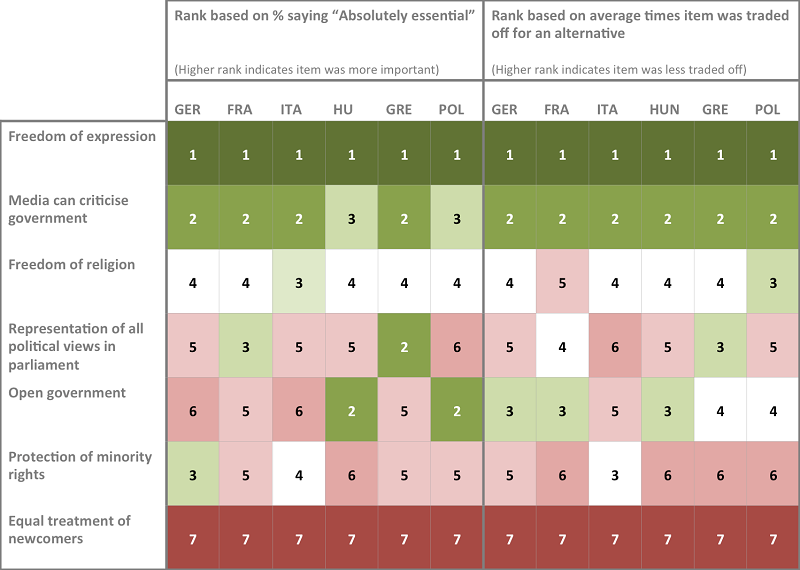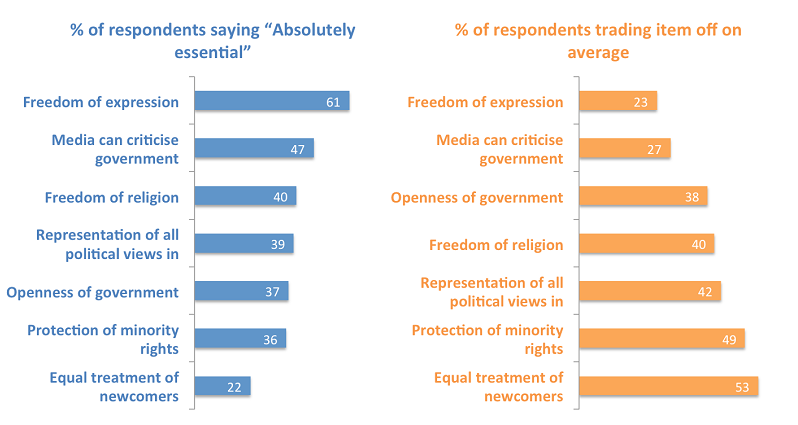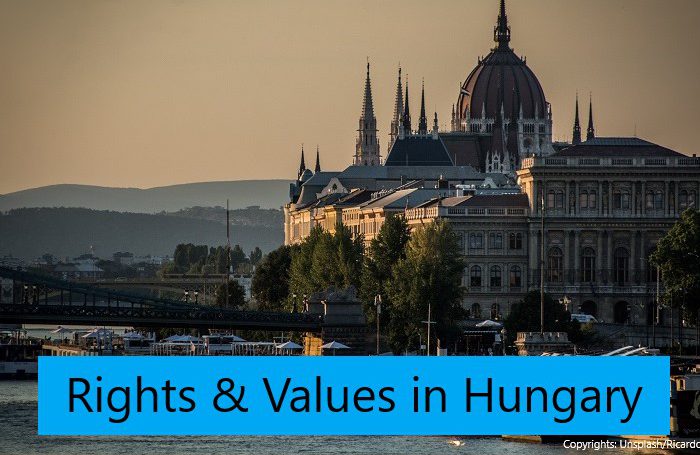Despite populism, values still matter to Europeans
By Heather Grabbe and Jan Eichhorn
The Voices on Values project looks at how Europeans in its survey’s six countries value their rights, and how much they are influenced by political circumstances.
The rise of populism in Europe, characterised by xenophobia and at times outright racism, has led many politicians to conclude that citizens’ rights and long-held values are no longer important to voters.
Perhaps confusingly, though, recent research shows that on the whole Europeans still care about their legal rights and freedoms.
This apparent inconsistency is explained when people are asked precisely which freedoms they would trade off against such considerations as material wellbeing or upholding traditional national values.
Voices on Values researchers asked people in France, Germany, Italy, Greece, Poland and Hungary to rank the rights and freedoms they consider essential for a good society.
Figure 1: Ranking of rights and value items per country

Nearly two-thirds ranked freedom of expression number one in all six countries.
Nearly half all respondents think that it is absolutely essential that media should be able to criticise government.
Other important items are freedom of religion (40%), the possibility for all political views to be represented in parliament (39%), openness of government (37%) and protection of minority rights (36%).
The value they ranked as least important is the equal treatment of newcomers to their country (22%).
But even the rights that come bottom of the list received significant support. Equal treatment of newcomers may be considered as absolutely essential by only a fifth of survey respondents, but a further 48 percent rated it as fairly essential.
Figure 2: Importance of rights and value items and their trade-off average across all countries

From an open society standpoint, some of the differences between countries are encouraging. In Poland and Hungary, significantly more people than in the other countries think it important that groups critical of the government are able to engage with it. This coincides with controversial measures introduced by the government that seek to increase its control of state institutions, and thus consolidate the ruling party’s powers.
Greek and French respondents found it especially important that all political views should be capable of being represented in parliament. This is striking because in the former, populists are in government, and in the latter enjoy considerable voter support.
Drawing conclusions from these findings is difficult at a time of growing political volatility in Europe, but the differences between countries underline the danger of generalisation. We need to consider EU countries separately to shape wider policy implications.
–
Heather Grabbe is Director of the Open Society European Policy Institute. Jan Eichhorn is a partner at d|part.
The authors of this article, Heather Grabbe and Jan Eichhorn, developed the Voices on Values project to better understand the many elements that play into the way people think about the open society in Europe.
Disclaimer
The views and opinions expressed in this article are those of the authors.




